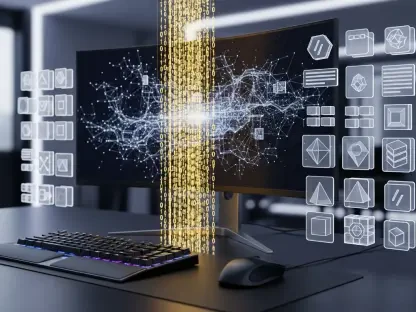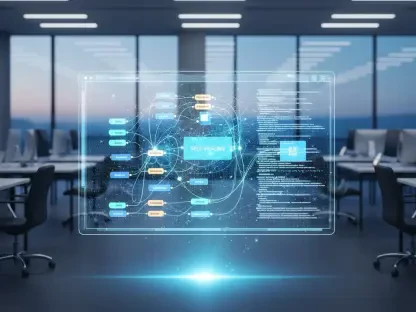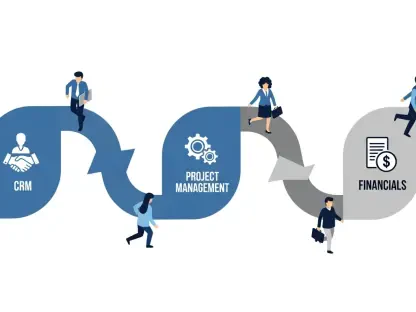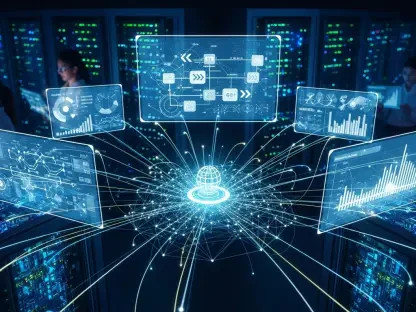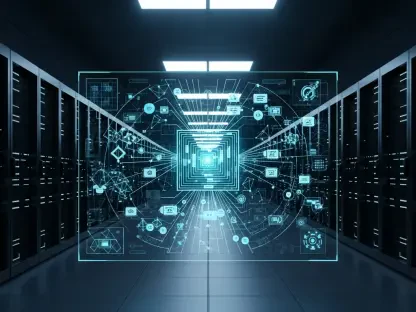I’m thrilled to sit down with Anand Naidu, our resident development expert, who brings a wealth of knowledge in both frontend and backend technologies, along with deep insights into various coding languages. With a keen understanding of the evolving landscape of AI-driven DevOps and software supply chain security, Anand is the perfect person to dive into how innovative platforms are shaping the future of development. In this interview, we’ll explore groundbreaking advancements in AI model management, the transformative impact of AI algorithms on DevOps and DevSecOps, strategic partnerships driving AI infrastructure, and the financial trends reflecting growth in this dynamic space. Let’s get started!
How do you see the integration of AI models into traditional DevOps pipelines changing the way developers and data scientists collaborate?
The integration of AI models into DevOps pipelines is a game-changer for collaboration. By treating AI models as core components, much like code, developers and data scientists can work within the same frameworks, using shared tools for version control and deployment. This breaks down silos, as both teams can track changes, ensure reproducibility, and address compliance together. It fosters a unified workflow where data scientists can focus on model innovation while developers streamline integration, ultimately speeding up delivery without sacrificing quality.
Can you walk us through how managing AI models as first-class artifacts addresses specific challenges like scalability or compliance?
Absolutely. When AI models are treated as first-class artifacts, they’re subject to the same rigorous processes as software—think version control, automated testing, and audit trails. For scalability, this means models can be deployed across distributed systems with consistency, avoiding manual errors. On the compliance front, it ensures that every model version is traceable, which is critical for regulated industries. It also helps enforce policies around data usage and model behavior, reducing the risk of non-compliance penalties or ethical missteps.
In what ways do AI-driven tools transform static software supply chains into more dynamic and adaptive systems?
AI-driven tools bring a level of intelligence to software supply chains that static systems just can’t match. They analyze real-time data to optimize build processes, predict bottlenecks, and even suggest improvements. For instance, they can dynamically reroute resources during peak loads or flag potential security issues before they escalate. This adaptability turns a rigid pipeline into a self-optimizing system that evolves with project needs, cutting down on delays and improving overall efficiency.
How are AI algorithms reshaping the day-to-day operations of DevOps teams in the software industry?
AI algorithms are fundamentally changing DevOps by automating repetitive tasks and providing deeper insights. Teams no longer spend hours on manual monitoring or troubleshooting—AI can predict failures, optimize CI/CD pipelines, and even suggest code improvements. It’s like having an extra team member that never sleeps, constantly analyzing logs and metrics to keep things running smoothly. This lets DevOps professionals focus on strategic work, like innovating new features, rather than firefighting issues.
What unique benefits do AI algorithms bring to security practices within DevSecOps?
In DevSecOps, AI algorithms are a powerful ally. They enhance security by identifying vulnerabilities in real time, often before human eyes can spot them, through pattern recognition in code and runtime behavior. They also automate threat response, like isolating a compromised container, which cuts down reaction time. Beyond that, AI helps in policy enforcement across complex, distributed environments, ensuring consistent security standards without manual oversight. It’s a proactive approach that embeds security into every step of the pipeline.
How do strategic partnerships in the AI infrastructure space enhance a platform’s capability to support end-to-end AI workflows?
Partnerships with leaders in AI infrastructure bring specialized expertise and technology into a platform, creating a seamless ecosystem for end-to-end workflows. For example, collaborating with hardware innovators can optimize model training and deployment with high-performance computing, while alliances with model hubs improve access to secure, vetted AI resources. These partnerships ensure that a platform isn’t just a standalone tool but a central hub connecting data preparation, training, deployment, and monitoring—making the entire AI lifecycle more efficient and trustworthy.
What does it mean for a company to act as a central ‘system of record’ for both software packages and AI models, and why is this significant?
Being a ‘system of record’ means the company serves as the authoritative source for tracking and managing software packages and AI models across their lifecycle. It’s significant because it ensures visibility and trust—every artifact, whether code or a model, is cataloged with metadata on origin, versions, and dependencies. This centralization simplifies audits, enforces governance, and mitigates risks like using unverified components. For organizations, it’s a single point of truth that streamlines operations and builds confidence in their supply chain.
How do you see the financial growth in cloud-native and AI-driven software delivery markets influencing long-term stability for companies in this space?
The surge in cloud-native and AI-driven markets is a strong tailwind for companies in this space. High growth in cloud revenue, especially with recurring models, signals a shift to predictable, high-margin income streams that bolster financial stability. It shows that customers are committing long-term, often expanding their usage, which reduces churn. This kind of stability allows companies to invest confidently in innovation, like new AI features, without the uncertainty of fluctuating revenues. It’s a solid foundation for weathering economic ups and downs.
What is your forecast for the future of AI-driven DevOps and software supply chain security over the next decade?
I believe the next decade will see AI-driven DevOps become the standard, not the exception. We’ll likely witness even tighter integration of AI into every layer of the software supply chain, from autonomous code generation to predictive security measures that stop threats before they emerge. Security will evolve into a fully proactive field, with AI not just detecting but preventing issues through real-time learning. The challenge will be balancing this automation with human oversight to avoid over-reliance, but overall, I foresee a landscape where AI empowers teams to build faster, safer, and smarter than ever before.


